Log in or create new account to save this product to your wishlist.
Get Ready for this Year’s Lawncare Tasks
January and February are quiet months for the garden. So, use this rare relaxed window to prepare your gardening tasks for the year ahead.
Latest articles
7 MIN 22 Jul How to keep your lawn in shape this summer 9 MIN 15 Jul Watering Your Garden: 10 Top Tips! 11 MIN 15 Jul Is Your Grass Type Right for your Garden? 11 MIN 10 Sep Create Your Low-Maintenance Garden – Tips and Ideas 11 MIN 08 Sep The Ultimate Guide to Choosing the Perfect Hedges for Your Garden 12 MIN 30 Aug The Top 20 Evergreen Climbers to Transform Your GardenThe first couple of months of the year is relatively quiet in terms of gardening tasks. But for an excellent flying start come springtime, there are some key lawn care maintenance tasks to complete while the weather is too cold for germination.
- Lawn care maintenance tasks: Look after your mower
- Lawn care maintenance tasks: Stock up on feed
- Should I overseed my lawn?
- Lawn care maintenance tasks: Tool maintenance
- How to clean your tools
This blog explores the essential lawn care tasks to complete before the growing season commences. Because a beautiful lawn needs a little love and attention even while it’s sleeping.
Ready? Let’s go.
Lawn care maintenance tasks: Look after your mower
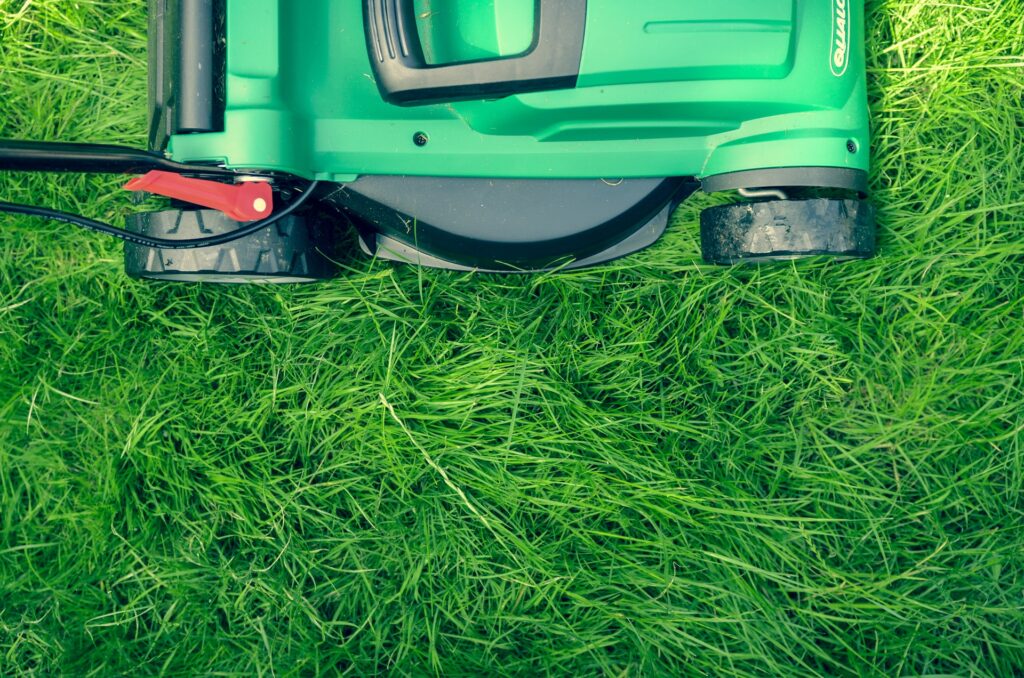
Your lawn won’t have come out of its winter dormancy yet, so you’ll be enjoying some welcome time off from your regular mowing routine. But that also means that your mower is sitting in a cold, damp shed over the winter.
So, this is the best time to think about maintaining your lawnmower for optimal performance come spring.
Most of us mow the lawn and then bung the mower back in the shed as quickly as possible. But remember, your mower is a machine that requires a little love and attention now and then.
For petrol mowers
It’s advisable to drain the tank before you store it over the winter. The petrol goes stale after a couple of months, and it can gunge up the insides of your engine. So, if you haven’t drained the tank yet, make sure you do it now!
The second task is changing the oil before your first mow of the season. New oil helps keep the engine’s moving parts in tip-top condition. Make sure you unplug the spark plugs before you drain the tank. And recycle the oil at your local refuge centre.
Check the air filter. Run it under the tap and let it completely dry before refitting. If it’s still dirty, repeat the process, or consider buying a new filter if it’s a few years old.
Change the spark plug. Your spark plug becomes dirty really quickly, and a dirty spark plug could cause malfunction during the year. Make sure that you replace it with the same size plug, and fit it carefully, taking care to avoid crossing and damaging the thread.
And finally, oil the wheels for smooth operation. And check all the nuts and bolts around the mower to ensure that everything’s nice and tight and secure.
For an electric/manual lawnmower
These tasks apply to both petrol- and electric lawnmowers:
Clean the underside of the mower and sharpen the blades.
Grass is alive when you cut it, which means that it has a high water content. Wet grass blades stick to the underside of your mower and dry out, caking on a thick layer of debris, which can hamper the operation of the motor.
So, make sure that you clean the underside of your mower with water and a scraper.
And probably the most important task of all: get those blades sharpened. Blunt blades tear your grass, which damages the plant, reducing its resistence to drought, infestation, and disease. So, sharpen your cutting blades every year before the growing season.
Lawn care maintenance tasks: Stock up on feed

Fertiliser, if stored properly, should last for many years. But it really does depend on how you’ve stored it.
All MOOWY fertilisers and lawn feeds are shipped in resealable packaging. This means that – if fully resealed – your feed will last for several applications.
What type of feed you might need
Think about the current state of your garden, and consider which types of feed it might need:
A patchy lawn with a full or partial covering of moss needs lime to neutralise acidity within the soil and an iron-based moss killer and fertiliser to kill off the moss while re-feeding the soil.
If there are patches of dead or yellowing grass, you could either have a pest infestation or the soil may be lacking in nutrients.
If you suspect it’s a pest problem, check out our expert articles on identifying and eliminating leatherjackets and chafer grubs.
Alternatively, your lawn may just need fertilising and overseeding. But, it’s essential to use the right type of fertiliser for your specific lawn – check out our expert’s guide to fertilising your lawn for details.
Should I overseed my lawn?
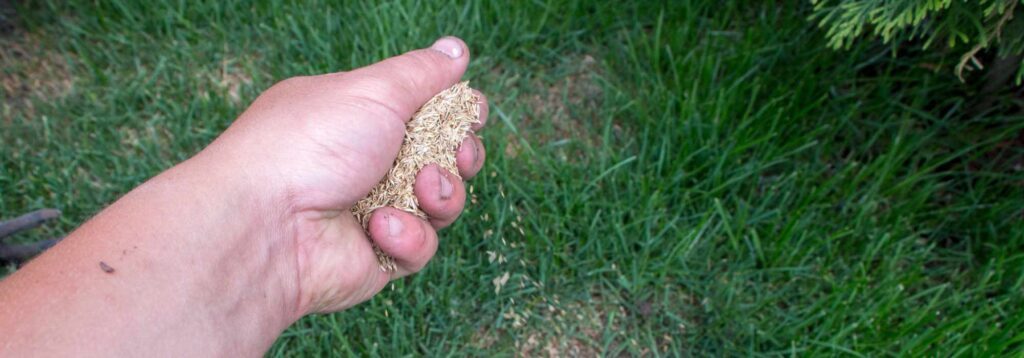
Every lawn needs overseeding every couple of years to ensure thick grass coverage all year round. We’re going to be writing an expert’s guide to overseeding your lawn in the near future, but just as a brief outline:
Overseeding is less invasive than sowing seed from scratch – more of a patch-up maintenance task than a full-on project. You just need to rough up the surface soil with a rake before you scatter your seeds, ensuring they make good connection with the soil.
However, the most important condition for seed germination is the soil temperature: it needs to be at least 10ºC before your seed will germinate.
So, while it’s a little early to start overseeding, it’s a great time to stock up on your seeds. Again, MOOWY seeds are supplied in resealable pouches, which helps keep your seeds healthy for longer.
You might not have sown seed before, so check out our ultimate guide to sowing grass seed. And for best results, it might be a good idea to buy yourself a seed spreader, ready for the growing season.
Lawn care maintenance tasks: Tool maintenance
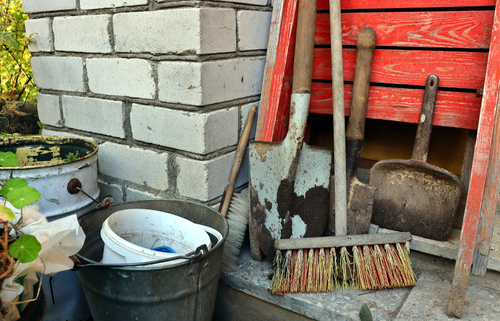
We’ve talked about maintaining your mower, but this time of year is also an excellent time to think about cleaning your garden tools, such as your spades, forks, shovels, and sprinklers.
You might think it slightly pointless to wash down your garden spade, for example, because – let’s face it – it’s soon going to get dirty again. But cleaning your tools isn’t necessarily about aesthetic maintenance; it’s about hygiene and longevity.
It’s not impossible to infect your soil with a range of harmful diseases if you use an unclean tool. If, for example, your spade or fork has come into contact with conditions such as box blight, bacterial canker, or phytophthora, it’s possible to contaminate your clean soil.
How to clean your tools
Blast your tools with water from your garden hose and scrape off persistent mud with a scraper or putty knife. If dirt or grime remains, soak the tools in a bucket of warm water and washing-up liquid, removing debris with wire wool or a stiff wire brush.
If you’re cleaning a tool with moving parts, such as secateurs or garden shears, lubricate the hinges with WD40. And for easier use during the year, sharpen the cutting blades.
And finally – for extra safety – disinfect your tools with chlorine bleach or a ready-made garden disinfectant, such as Jeyes Outdoor Cleaner.
Ready to get started? Or do you have questions?
We hope you’ve got plenty of good tips from this blog piece, but if you have any questions, please don’t hesitate to get in touch.
Send us an email, and we’ll get back to you as soon as we can!
Thanks for reading.
Leave a comment
Your answer will be displayed on the site and the interested party will be notified by email.
Leave a comment
Have a question or want to share your experience? Leave us a comment.
Read more
The best tips and tricks for a lush green lawn
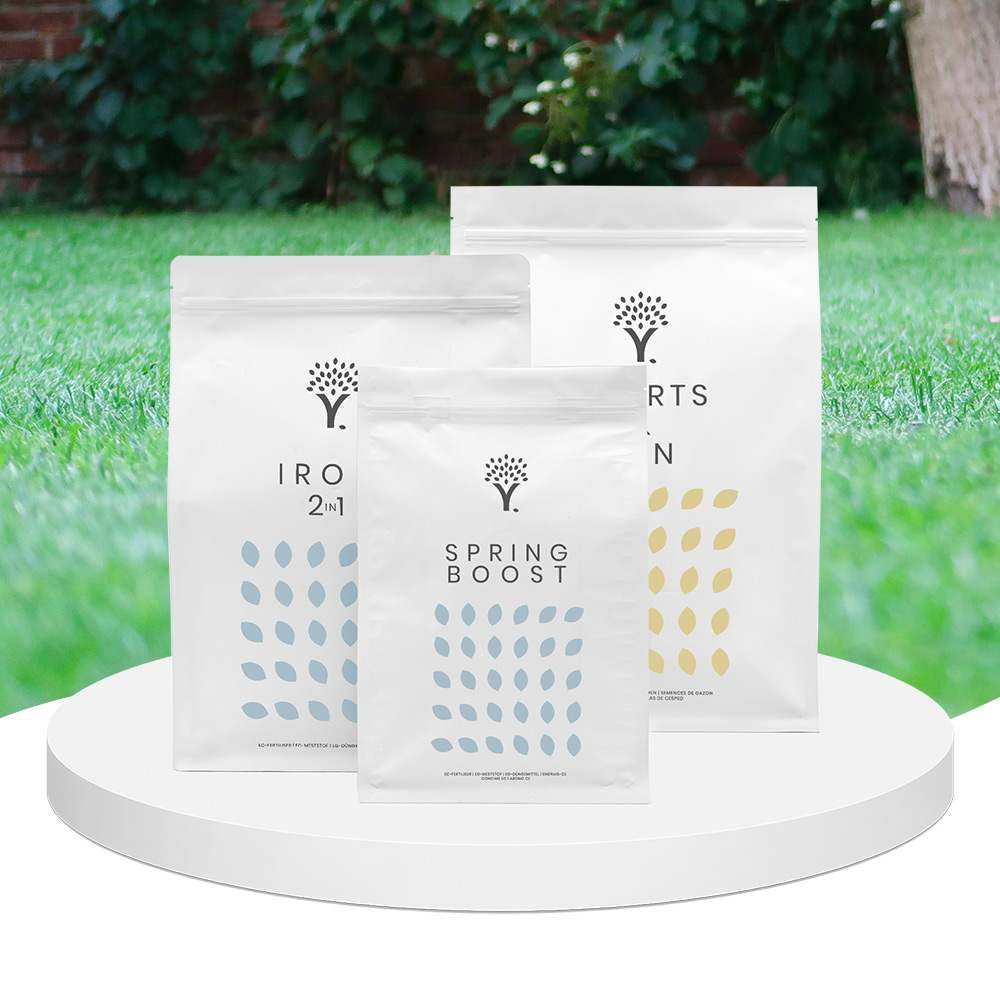 Scarifying Kit
All products after scarifying | Quickly restores the lawn after scarifying | Outsmart weeds quickly with the use of this kit
From: € 39.99
Scarifying Kit
All products after scarifying | Quickly restores the lawn after scarifying | Outsmart weeds quickly with the use of this kit
From: € 39.99
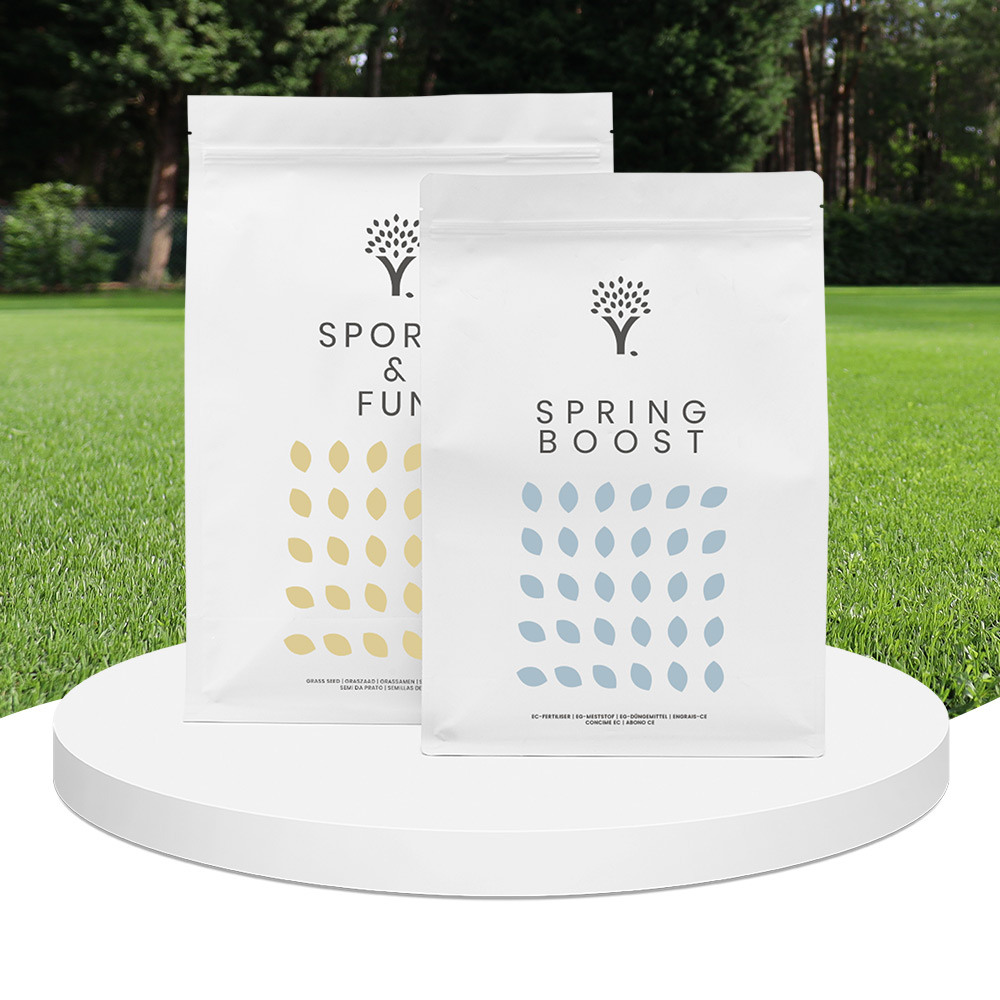 Spring Lawn Care Kit
MOOWY’s choice for the spring | Quick recovery of your lawn after winter | A strong lawn prevents weeds
From: € 25.99
Spring Lawn Care Kit
MOOWY’s choice for the spring | Quick recovery of your lawn after winter | A strong lawn prevents weeds
From: € 25.99
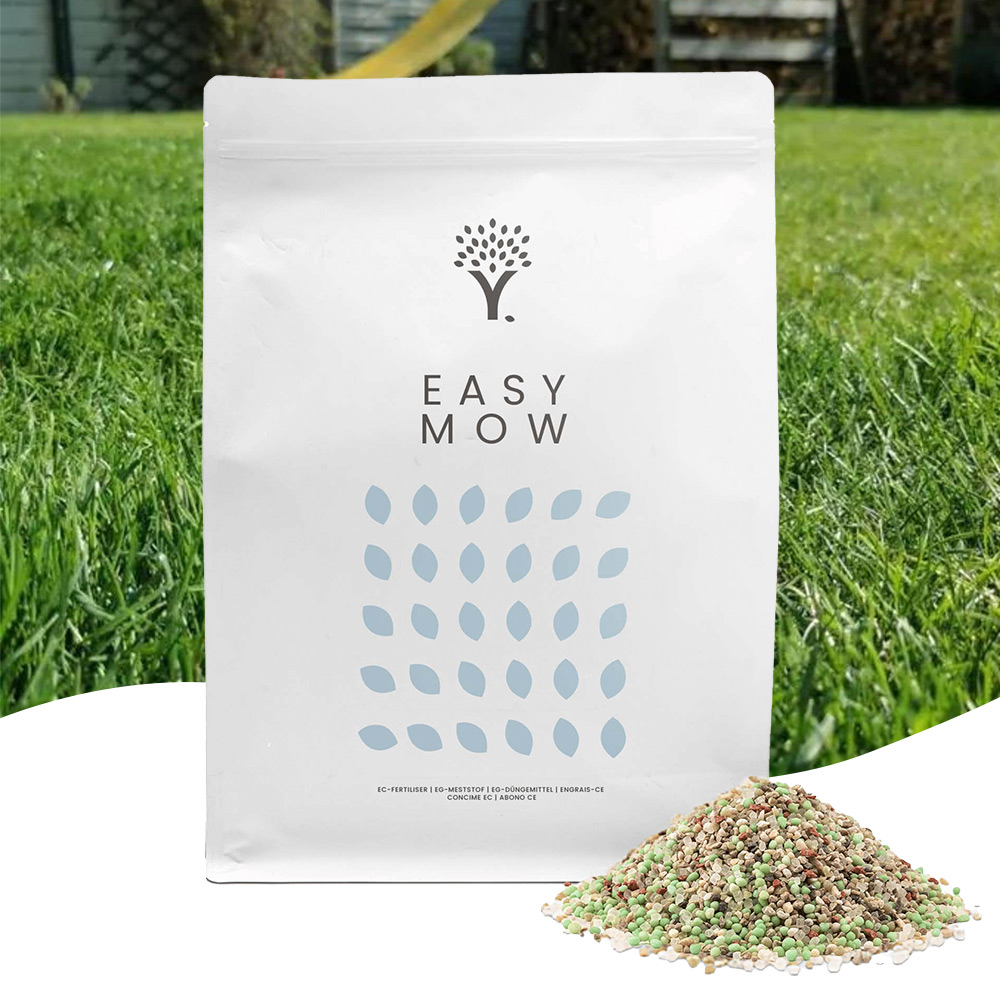 Long Lasting Lawn Fertiliser
Effective for 90 days | See results in 14 days! | Suitable for all types of grass and soil
From: € 13.99
Long Lasting Lawn Fertiliser
Effective for 90 days | See results in 14 days! | Suitable for all types of grass and soil
From: € 13.99
Do you want a lawn calendar?
🌱 All important maintenance moments for your lawn during the year. Leave your email and we will send you the lawn calendar for free.
Enter your email
Receive the lawn calendar in the mail
Enjoy a green lawn all year round!




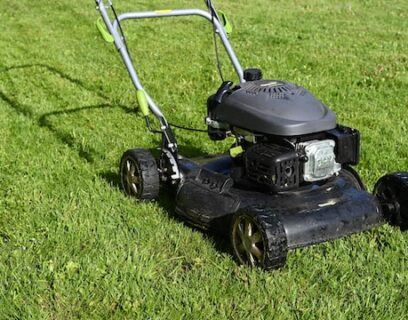



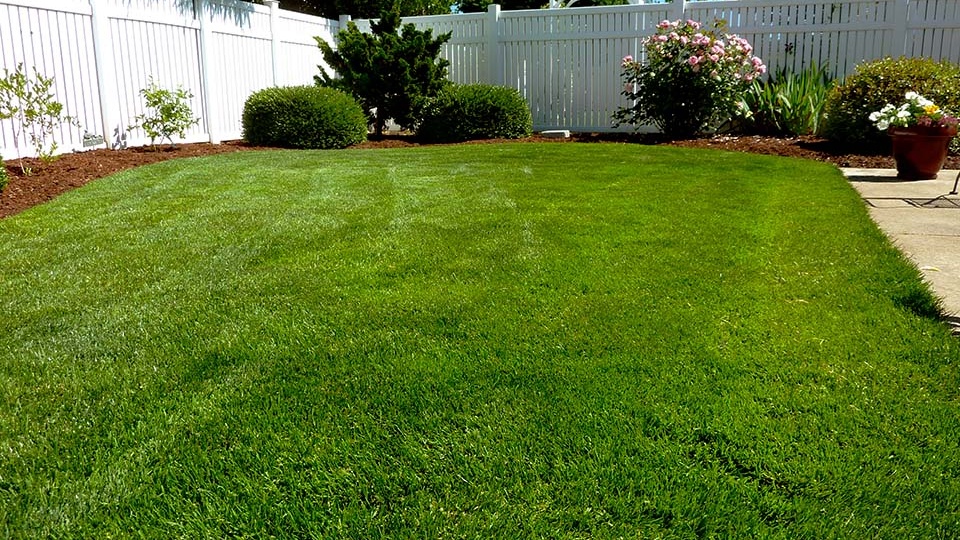

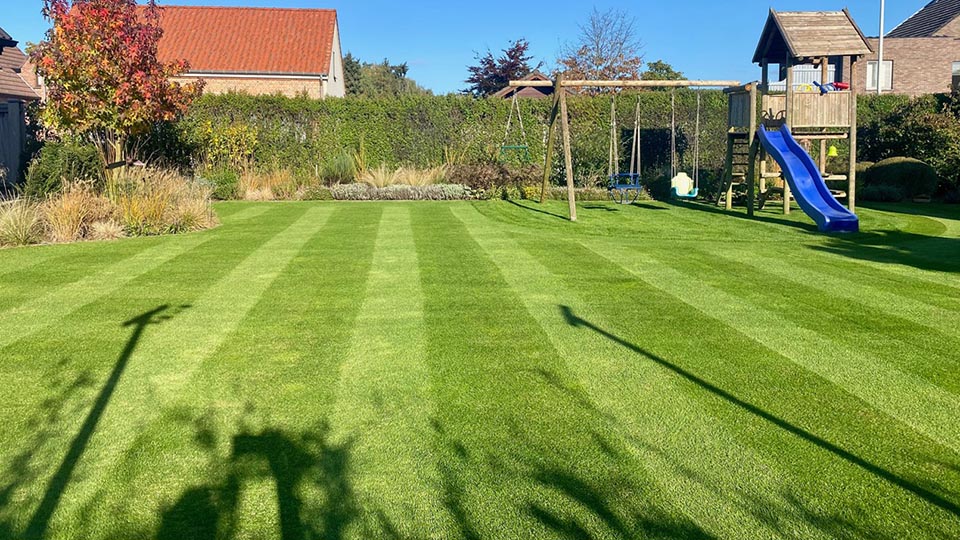

Comments (0)
There are no comments yet. Well then, what are you waiting for to
Be the first to write your comment!inaugurate this pretty page?
Do you have some comments?